Leonid Nevzlin: ‘Swiss Banks must choose – money or decency’
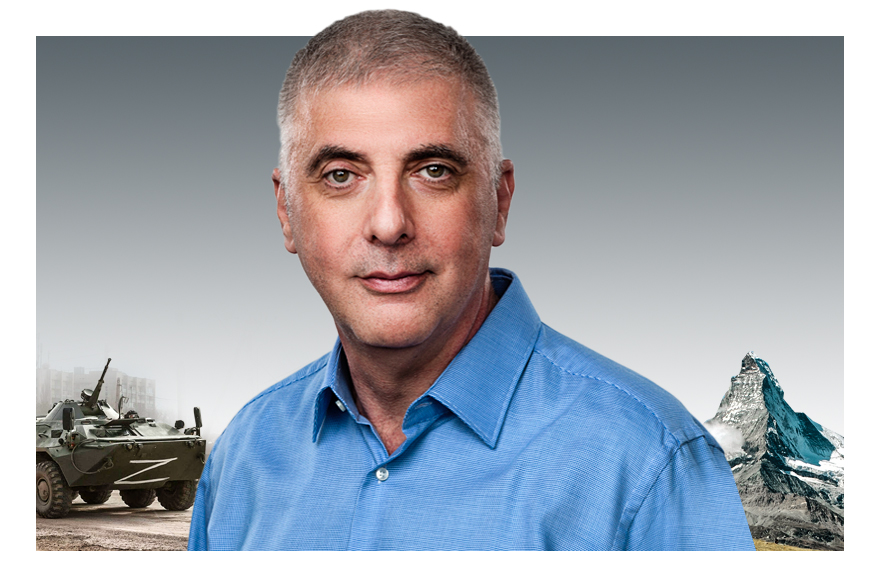
How effective are western sanctions against Russia? What role does Switzerland play in the war against Ukraine? We put these questions to President Vladimir Putin’s harshest critics. Our series continues with former energy magnate Leonid Nevzlin.
Switzerland plays an important role as a traditional safe haven for Russian assets and a trading hub for Russian commodities. It must not hide behind its neutrality but should actively help to ensure that the Russian war regime runs out of resources. That is the consensus among all the opinion leaders in the Russian opposition to whom SWI swissinfo.ch spoke.
For this interview series, we contacted the most relevant voices currently speaking up against the Kremlin. Most of them had to leave the country because of their vocal opposition. Putin opponent and former chess champion Garry Kasparov now lives in Croatia and the USA; entrepreneur Leonid Nevzlin fled to Israel; economist Sergei Guriev moved to France; and economist Sergey Aleksashenko lives in Washington. Opposition politician Vladimir Kara-Murza has been in Russian custody since April this year.
Russian-born Leonid Nevzlin was part of the top brass at Group Menatep, one the first privately-owned banks in post-Soviet Russia, and its subsidiary Yukos Oil company. He fled to Israel after the Kremlin launched a crackdown against politically inconvenient business elites in 2003. In 2003, the Russian state expropriated Yukos and went after its executives, imprisoning the company’s CEO Mikhail Khodorkovsky, who had become a political threat to Russian President Vladimir Putin, on charges of fraud and tax evasion.
Nevzlin, a close associate of Khodorkovsky and a key player in Yukos, was also targeted with an arrest warrant at the time but he managed to flee to Israel. In 2008, a Russian court sentenced him to life behind bars in absentia on murder charges. Nevzlin always denied the charges saying they were part of a plot to discredit Khodorkovsky. Russia’s Permanent Court of Arbitration ruled in his favour six years later, concluding Moscow had carried out a “ruthless campaign to destroy him”. The Hague’s arbitration court ruled in July that the expropriation of Yukos was illegal and in violation of international law.
In Israel, Nevzlin has established himself as an influential businessman and philanthropist. He was president of the Russian Jewish Congress and owns 25% of the Israeli newspaper Haaretz. Following Russia’s invasion of Ukraine early 2022, Nevzlin renounced his Russian citizenship stating, “Everything that Putin touches dies”.
SWI: Mr Nevzlin, what leverage does Switzerland have against Russia in terms of international sanctions?
Leonid Nevzlin: Swiss bank accounts belonging to Putin’s regime cronies are still open and functioning. While the Swiss government joins European Union sanctions against Russia – which is the right thing to do – banks are not doing enough to track down the accounts of sanctioned individuals. They are not taking measures that would be appropriate to the situation.
SWI: But it is said that Swiss banks are avoiding relations with Russia, if only for reputational reasons. Do you doubt that?
L.N.: I understand the temptation to “not notice” some suspicious transactions when billions of euros are at play, not to mention the reputation of a banking system that is known to be the most trustworthy for customers worldwide. But it is important to understand there are more important things than money. People’s lives, European values, and the future of the whole continent are at stake. This is why even banks, as contradictory as this may sound, must choose between money and international solidarity, i.e. decency.
SWI: Swiss banks have a legal obligation to report suspicious assets and movements. Is that not enough?
L.N.: I am convinced it is necessary to study to the finest detail the origin of the funds Russian customers keep in Swiss banks. First freeze, second investigate, then unfreeze if nothing illegal was found. We confronted a similar situation in 2007. That year Switzerland released the Yukos funds, which had been at the request of the Russian prosecution. That meant creating a legal precedent, but it resolved the issue.
SWI: What do you expect from Swiss authorities?
L.N: As before, I would like to see more thorough investigations and real consequences for those found guilty.
I recall how in 2015 Switzerland’s prosecutor declined to conduct any investigation whatsoever after [jailed Russian opposition leader Alexei] Navalny requested one regarding the son of Russia’s Prosecutor General Yuri Chaika. It was an outrageous decision. If in the past the authorities had not turned a blind eye to big flows of money, stemming from corruption schemes and criminal activities in Russia, maybe Putin’s friends would not feel such impunity.
+ Navalny on the Artyom Chaika case:
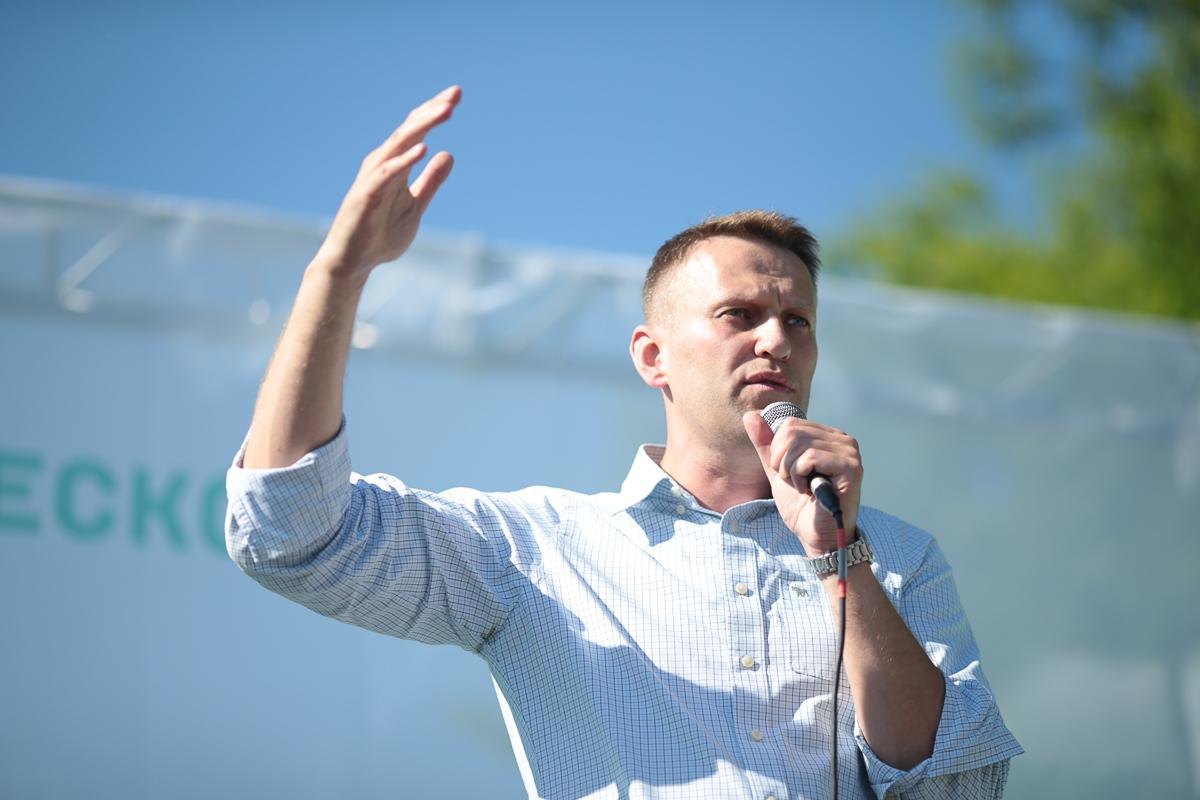
More
Switzerland ‘first choice for corrupt Russians’
Swiss authorities also need to take a closer look at real estate transactions. That’s because many buyers are acting on someone else’s behalf. In a situation, where Russia’s aggression against Ukraine created a threat to the entire world, it is better to overdo it, than not to do enough under the guise of neutrality.
Michael Khodorkovsky is a Russian opposition politician in exile in London and former CEO of the Russian oil giant Yukos. In a written response to a question from SWI swissinfo.ch, he shared his view on Swiss neutrality
“Thanks to its neutral status outside any alliance, Switzerland offers the possibility of safe dealings on its territory,” Khodorkovsky stated. “This includes consular activities, visa matters, confidential communications, including digital ones. [Switzerland also] restricts activities of other countries’ intelligence services on its territory.”
“At the same time, it is clear that it is politically, economically and culturally impossible to belong to Europe without sharing basic European values,” he added. “That’s why there was no alternative to developing the traditional Swiss concept of neutrality.”
SWI: So, you’re saying neutrality serves as an excuse for Switzerland not to stick to business as usual?
L.N.: I respect this basic, fundamental principle of the Swiss state. But I also see that neutrality is a sacred cow that is hardly compatible with the situation in Europe when a large-scale war is underway. Switzerland has joined European Union sanctions, which is an important decision for this country.
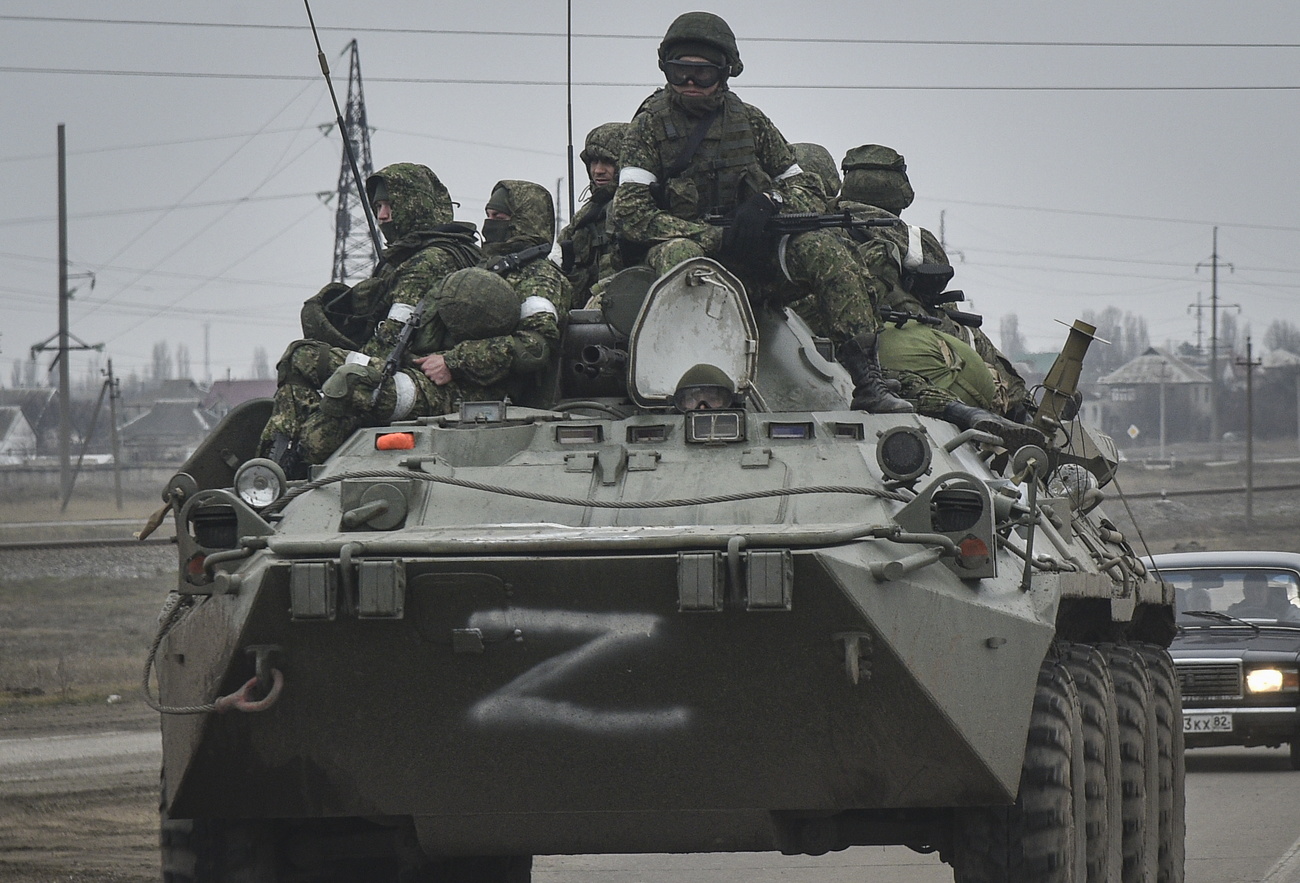
I must say that Putin did not expect this. In March, his inner circle was badly shaken by this. But as far as I know, Switzerland does not supply weapons or ammunition to Ukraine. I think Switzerland, like Israel, should muster courage and decide faster. When war rages, the world becomes more black-or-white, and there is less room for shades of grey.
SWI: How effectives have sanctions been so far? And what else is needed?
L.N.: Sanctions against Putin’s regime have two main objectives. First, they are intended to deprive Putin of the money he needs to finance the war in Ukraine. The most efficient solution here is to introduce an embargo on Russian oil and stop buying Russian gas. These measures will be the most painful for Europe. That is why Europe’s governments delayed them as much as possible.
They haven’t really come into effect yet, which allows Russia to save face for now: the economy didn’t collapse, the ruble is even stronger than before, while the Kremlin even continues to blackmail EU countries with cutting gas deliveries. But when Europe stops buying gas from Russia for good, Moscow will have a much harder time pretending that sanctions are not working.
The second objective of the sanctions is to slow down Russia’s technological development of Russia to such an extent that a new military invasion, be it in Ukraine, Poland or Baltic countries would be impossible in the next five or ten years. That is why a technology import ban was imposed. The government may not change and keep its ideology of hatred, fascism, and imperial irredentism; but the regime will have reduced capacity to kill people and destroy cities.
SWI: What should the West do if it wants the war to end with Putin’s defeat?
L.N.: In recent news, we see Ukraine has achieved many successes thanks to the courage of its soldiers and foreign military aid. The West needs to provide arms to Ukraine, in larger quantities and faster. We need to think about the coming winter and provide the means to help civilian populations in cities where the infrastructure is being destroyed.
Edited by Balz Rigendinger

In compliance with the JTI standards
More: SWI swissinfo.ch certified by the Journalism Trust Initiative
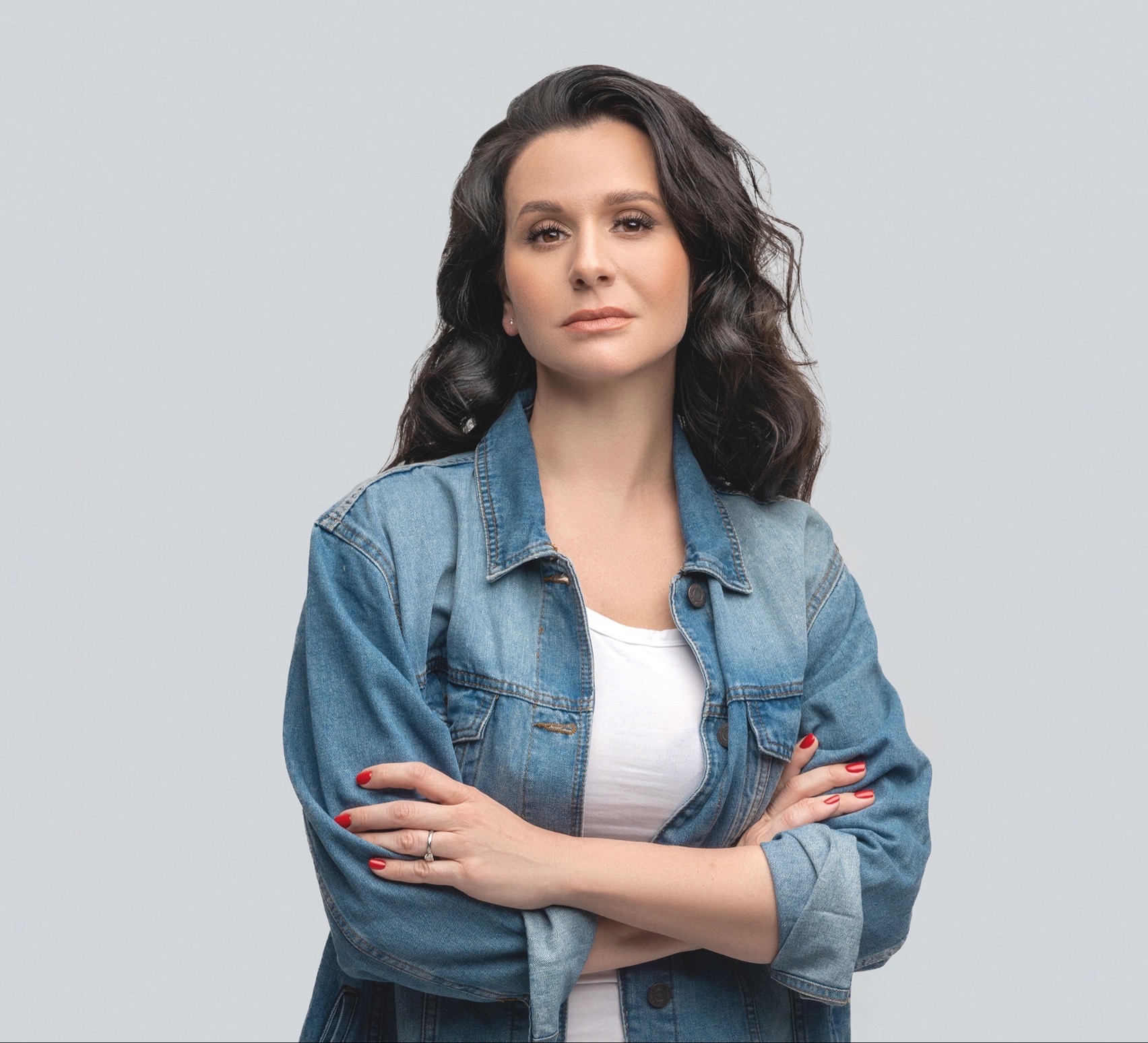









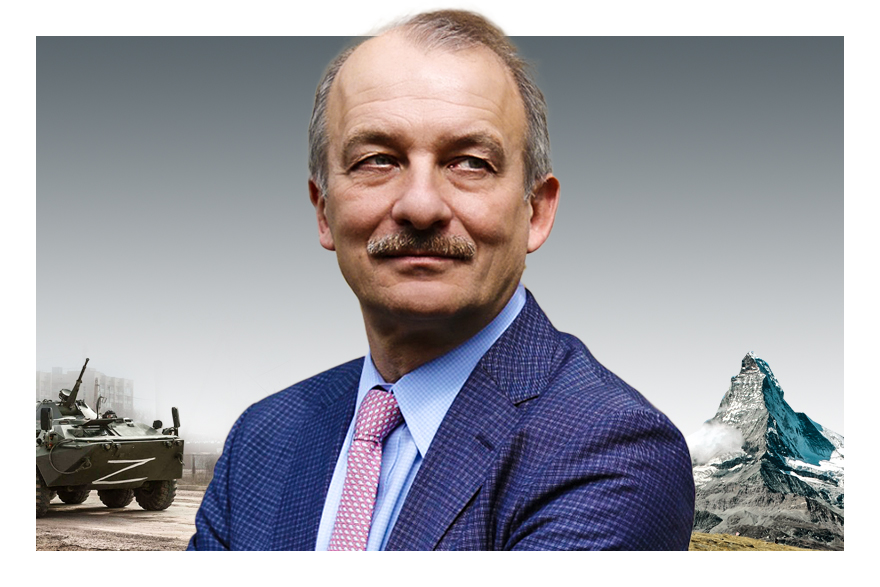
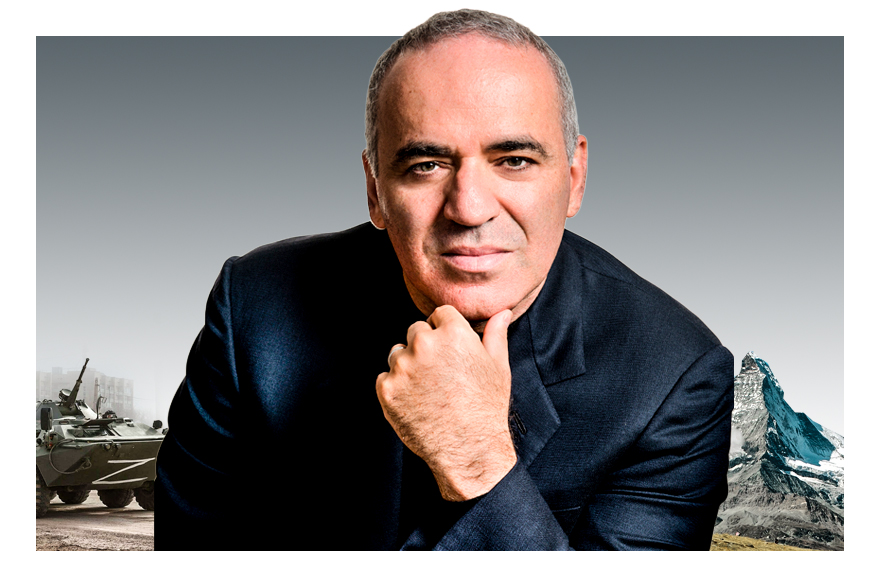
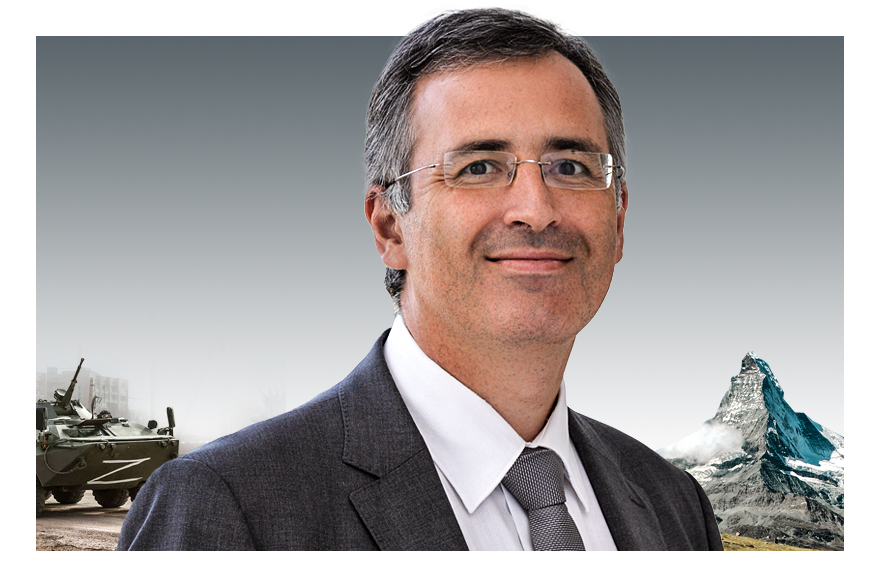
You can find an overview of ongoing debates with our journalists here . Please join us!
If you want to start a conversation about a topic raised in this article or want to report factual errors, email us at english@swissinfo.ch.